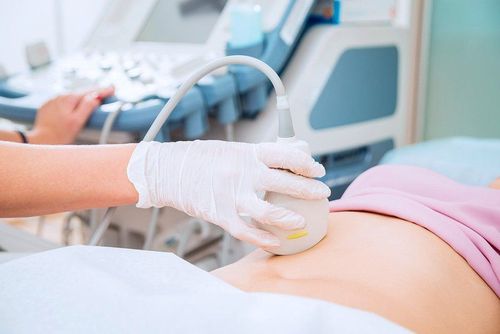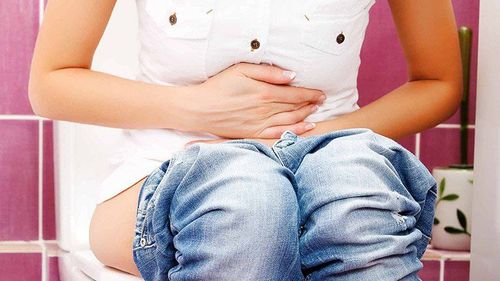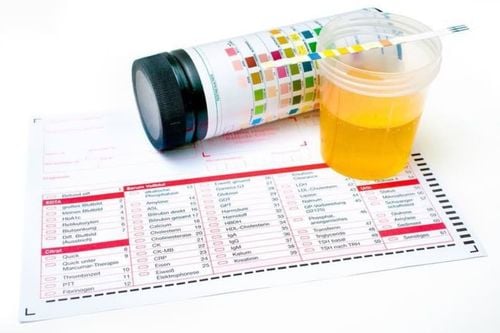The article is professionally consulted by Đỗ Thị Hoàng Hà, MD - Department of Laboratory Medicine - Vinmec Hai Phong International General Hospital.
A general health check-up is a necessary periodic examination that helps us to early detect diseases, intervene, and treat abnormal signs in the body in a timely manner. Below are the important considerations before undergoing a health check-up and foods to avoid before having tests to prevent interference with the results
1. Do I need to fast before a general health check-up?
A general health check-up involves a clinical examination and various tests, including blood tests, ultrasounds, endoscopies, etc. Each test and examination has specific instructions that need to be followed. Some tests require fasting for several hours, while others only require avoiding certain types of food, and some tests allow normal eating. Patients should carefully check the specific tests they will undergo to follow the correct guidelines, ensuring more accurate results.
Additionally, there are foods and drinks that should be avoided before testing to ensure better health outcomes, such as:
- Do not drink alcohol, beer, coffee, or beverages containing alcohol or caffeine.
- Avoid using stimulants.
- Avoid eating foods that are high in fat.
- Do not consume candies, sugary foods, or beverages before the test.
Before going for a health check-up, it's important to drink enough water because it is good for the body. Water also supports organ function and ensures more accurate test results, especially for measurements like blood pressure or pulse rate. Some tests also require drinking water, such as urine tests or abdominal ultrasounds.

2. Important considerations before specific tests
2.1. Blood Tests
Blood tests vary, and depending on the purpose of the test, your doctor will provide guidance on which foods to avoid.
- For lipid, blood sugar, and vitamin level tests, fasting for 10-12 hours is required. Nutrients in food, especially sugars and fats, can interfere with the accuracy of test results. It is best to perform these tests in the morning, as the overnight fasting period helps food to be digested and metabolized.
- Avoid consuming coffee, alcohol, sodas, milk, carbonated drinks, or fruit juices 8 - 12 hours before the blood test, as these drinks provide energy and stimulants that can lead to abnormally high test results.
- Do not take any supplements, vitamins, or minerals before the test, especially for vitamin and micronutrient tests. The exact period of stopping supplements should be determined by your doctor. For medications such as those for diabetes or hypertension, consult with your doctor before taking them.
Some blood tests, such as complete blood count, iron, and calcium tests, can be done without fasting.
2.2. Urine Tests
Similar to blood tests, avoid consuming foods or drinks that are high in sugar and fat before a urine test. Fasting for 12 hours is recommended.
For some urine tests, fasting may not be necessary, but drinking plenty of water is essential for more accurate results.
2.3. Vitamin Quantification Tests
Vitamin quantification tests should be done while fasting, so fasting for 8-12 hours before the test is necessary. Eating before the test can cause inaccurate results.
2.4. Gastroscopy
For a gastroscopy, fasting for 12 hours is required. An empty stomach helps to obtain clearer images during the endoscopy, aiding the doctor in making accurate diagnoses.
2.5. Abdominal Ultrasound
For an abdominal ultrasound, fasting for 6-8 hours is required. 30-60 minutes before the ultrasound, drink plenty of water and avoid urinating to fill and stretch the bladder, making it easier for the doctor to observe the images clearly and diagnose accurately.
Each test has specific guidelines. If you are unsure whether a test requires fasting or what foods to avoid, it is advisable to consult with your doctor beforehand. Any use of prescribed medications before tests should be done under medical supervision to avoid influencing the results.

3. General Health Check-up Packages at Vinmec
Everyone, whether healthy or ill, should have a regular general health check-up every 3-6 months. Early detection of diseases greatly aids in treatment. Vinmec International General Hospital offers a range of convenient health check-up packages suitable for various individuals. The health check-up programs at Vinmec are designed scientifically and practically, enabling early detection and assessment of health conditions:
- Standard General Health Check-up
For individuals over 18 years old. It includes a general internal examination, dental check-up, eye, ear-nose-throat examination, gynecological examination (for females), blood tests, liver and kidney function tests, ultrasound, and X-ray. - Special General Health Check-up
For individuals over 40 years old who require advanced health checks. In addition to basic tests and exams, it includes detailed biochemical, microbiological, immunological tests, 3D breast ultrasound, ECG, and brain MRI. - VIP General Health Check-up
For individuals over 40 years old who need a comprehensive examination for high-risk conditions (neurological, digestive, endocrine, musculoskeletal, respiratory issues), including cancer screenings. - Pediatric Health Check-up
For children under 18 years old. It includes a comprehensive examination: internal medicine, eye, dental, ear-nose-throat, nutritional assessment, liver and kidney function, blood tests, and growth development evaluation. - Work Permit Health Check-up
For individuals needing health checks with foreign elements; foreign nationals; Vietnamese nationals living abroad; those going to work or study abroad.
Please dial HOTLINE for more information or register for an appointment HERE. Download MyVinmec app to make appointments faster and to manage your bookings easily.














